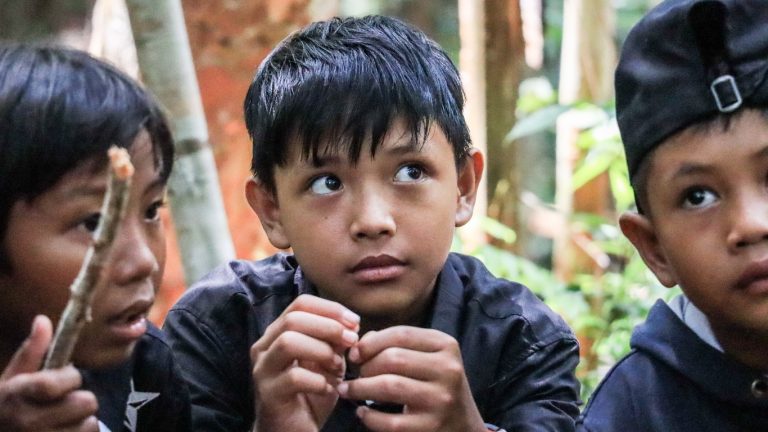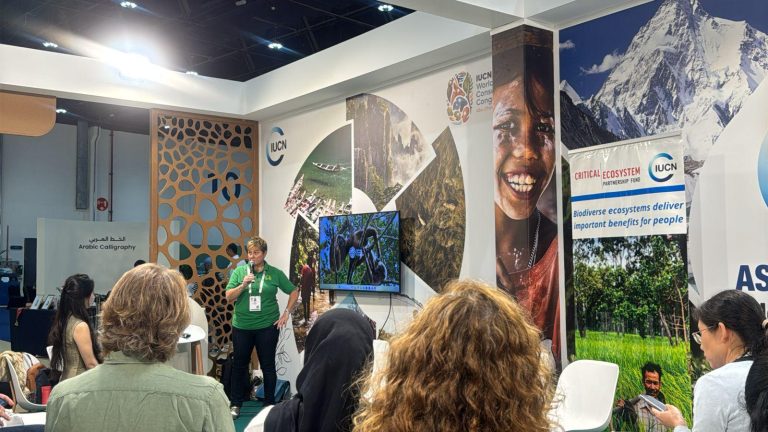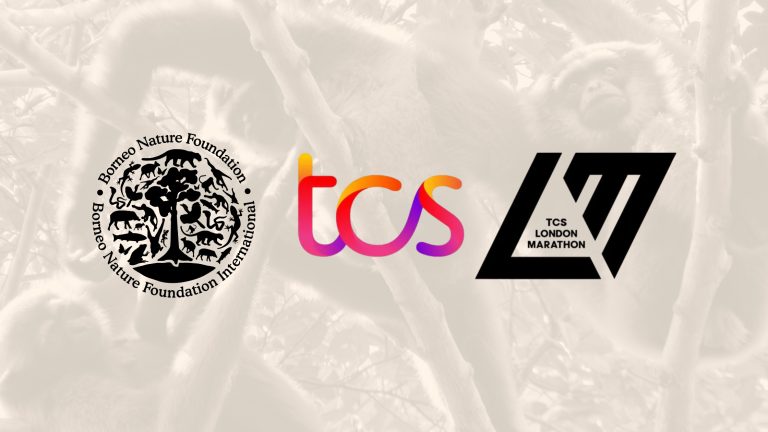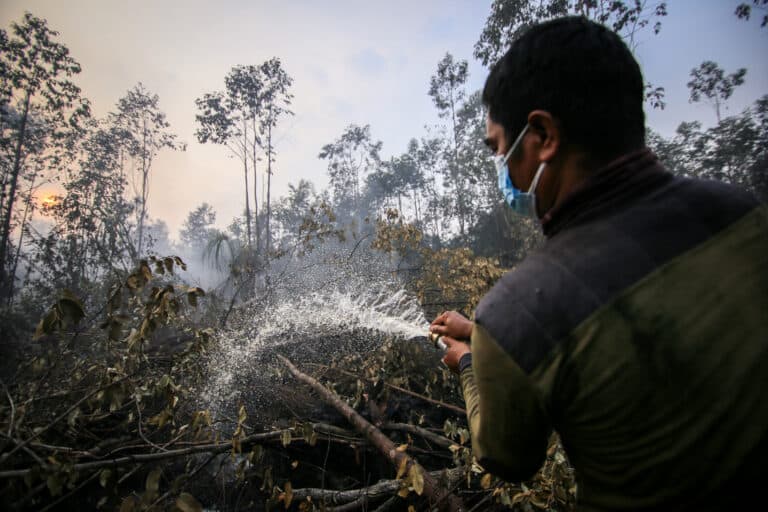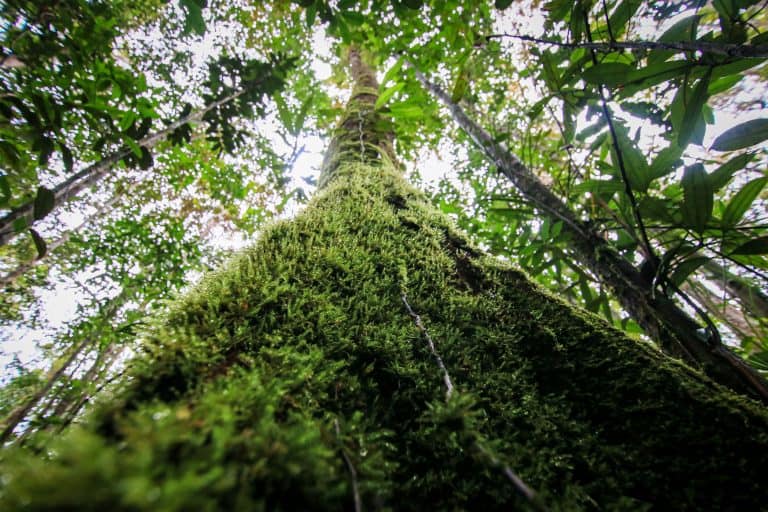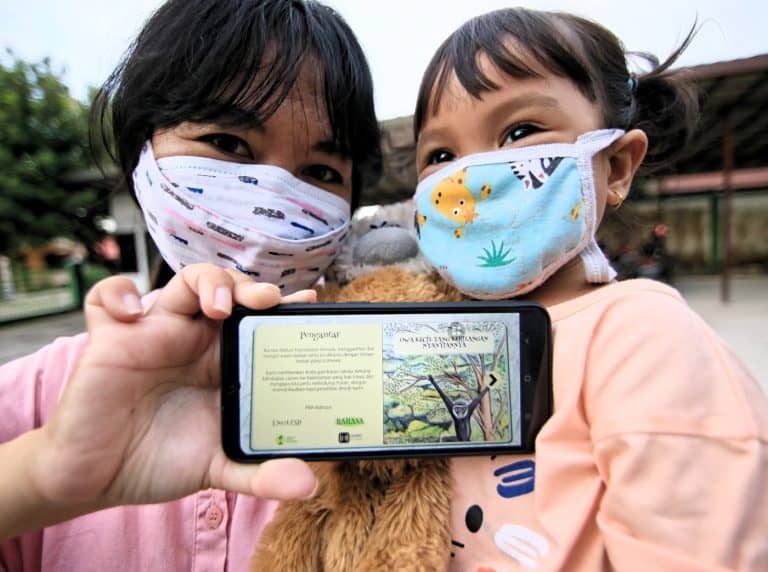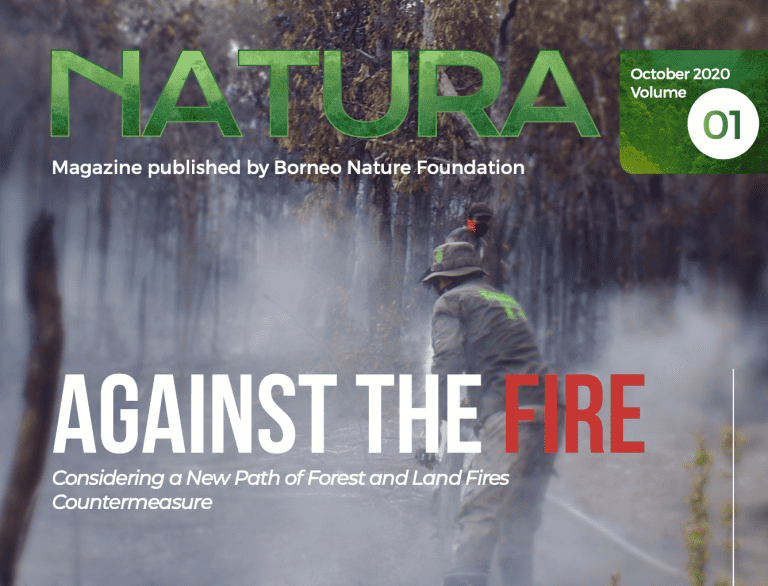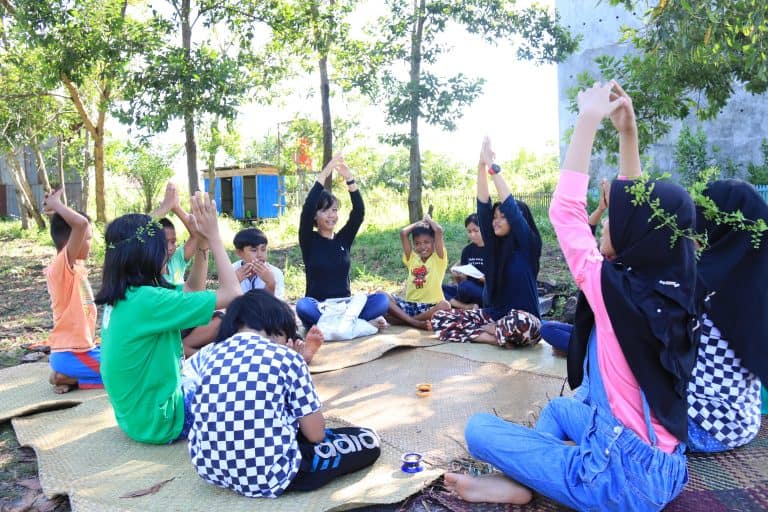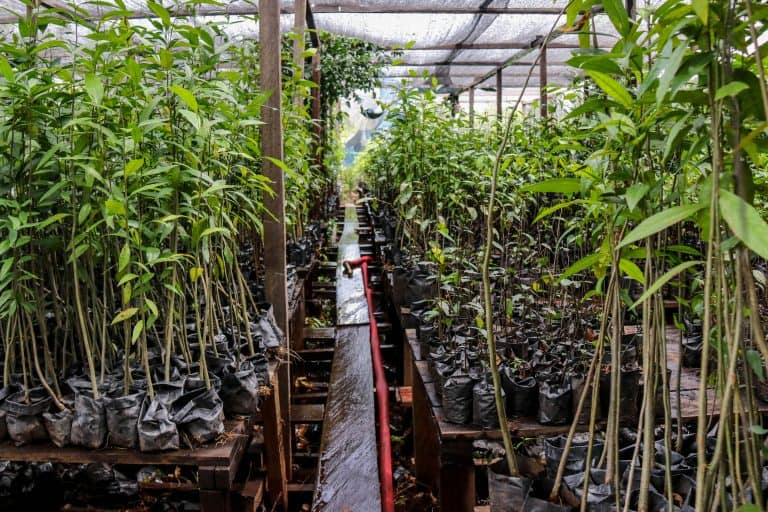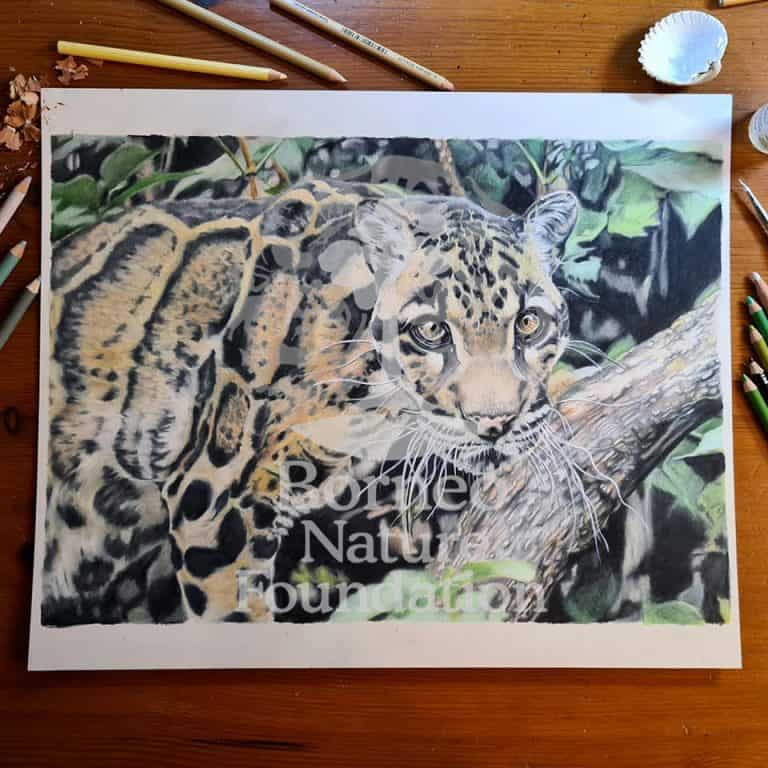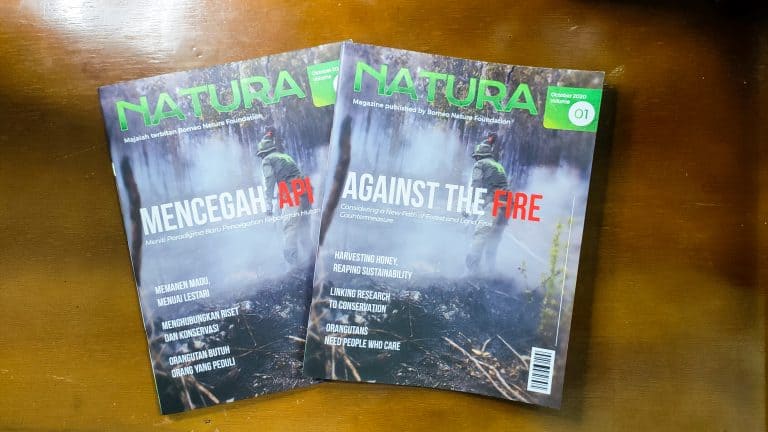
Every six months we carry out gibbon population surveys at our research site in the Sabangau Forest. This isn’t the usual walking transects type of survey; to survey gibbons is something quite special. The method is called ‘triangulation’, and is based on listening and mapping gibbon songs in the forest to find out how many gibbon groups there are and where they are in the forest. From this information, we can determine the density of the population in the forest. This month we completed our most recent gibbon surveys over five days, and worryingly found a reduction in our local population.
We can see, since the huge forest fires in 2015, our Bornean white-bearded gibbon (Hylobates albibarbis) population is changing. Now, when we survey there are far fewer gibbon groups to the east of our site, in the direction of the fires, and analysis of our past four population surveys shows a decline. This is cause for concern. This is real data showing us that after the fires, there is a lower density of gibbon groups in our core study area. The only way to stop this continuing is to protect the forest from burning again and to replant the burnt areas, which is the main focus of our Conservation Programme.
As we continue to monitor the density and ecology of gibbons in Sabangau, we can see how environmental changes such as fires, affect their ranging and behaviour. During the 2015 fires, a large portion of the forest habitat was lost. This means that the gibbons now have to try to fit into a smaller space, meaning more competition for food and other resources. Gibbons are highly territorial and if part of a group’s territory has been burnt, they will likely move to a new area, increasing conflict with other groups. Although it’s been more than a year since the 2015 disaster, the fires are still having an effect.
From our continuous research since the fires, we have noticed changes in singing behaviour and increased interactions between groups. This research is just one example of why we all need to work together to protect the Sabangau Forest now.


